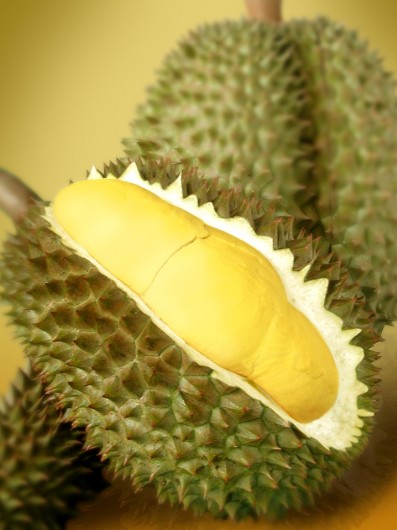Which Fruit Has The Most Riboflavin (Vitamin B2)?
The importance of having a balanced diet continues to make headlines in medical journals. A diet that provides all of the nutritional daily needs should include fruits, vegetables and low-fat proteins that supply a full spectrum of vitamins including the vital riboflavin vitamin B2. This important nutritional element helps prevent disorders related to the skin and eyes and reduces the risk of hair loss, lesions and inflammation. Riboflavin is a key factor in regulating metabolism and can affect a person’s energy level and their ability to concentrate. Including vitamin B2 in the diet by consuming natural foods is an important part of ensuring a healthy daily nutrition routine.
Benefits of Riboflavin Vitamin B2
One of the main benefits of riboflavin, or vitamin B2, includes the ability of this element to convert carbohydrates to sugars which provide energy for our daily activities. When the vitamin is absorbed, it helps form healthy red blood cells that continually nourish the body. The immune system is also enhanced by protecting against free-radical damage. Both children and adults need to maintain the minimum daily requirement of vitamin B2 to ensure overall good health.
Other benefits found from riboflavin include improved skin and hair texture. Eating foods rich in riboflavin helps prevent cataracts and acts as an anti-aging medium.
Health Risks from Deficiencies from Riboflavin Vitamin B2
Having an insufficient supply of riboflavin can lead to disorders that range from mild to severe. People under stress are often affected by the lack of vitamin B2 and may have difficulty sleeping or experience a lack of energy. During pregnancy, sufficient amounts of vitamin B2 helps prevent damage to the unborn fetus. Skin lesions are another symptom from riboflavin deficiencies as is hair loss. Migraine headache sufferers may have a riboflavin deficiency that is correctable by changing dietary habits.
Top Fruits For Riboflavin (Vitamin B2) Content
The amounts of Riboflavin (Vitamin B2) are given for 100g of each fruit.
1 Durian 0,20 mg
2 Cranberry 0,20 mg
3 Pumpkin 0,10 mg
4 Lychee 0,10 mg
5 Redcurrant 0,10 mg
6 Grape 0,10 mg
7 Mulberry 0,10 mg
8 Elderberry 0,10 mg
9 Passion Fruit 0,10 mg
10 Mango 0,10 mg
11 Blackcurrant 0,10 mg
12 Mangosteen 0,10 mg
13 Pomegranate 0,10 mg
14 Fig 0,10 mg
15 Banana 0,07 mg
16 Jackfruit 0,06 mg
17 Tangerine 0,04 mg
18 Grapefruit 0,03 mg
19 Cucumber 0,03 mg
20 Melon (Cantaloupe) 0,03 mg
21 Kiwi 0,03 mg
22 Lemon 0,02 mg
23 Pineapple 0,02 mg
24 Blueberry 0,00
25 Plum 0,00
26 Watermelon 0,00
27 Cherry (sweet) 0,00
28 Papaya 0,00
29 Peach 0,00
30 Strawberry 0,00
31 Orange 0,00
32 Apple 0,00
33 Pear 0,00
34 Lime 0,00
35 Gooseberry 0,00
36 Raspberry 0,00
37 Guava 0,00
38 Blackberry 0,00
39 Carrot 0,00
40 Tomato 0,00
41 Apricot 0,00
